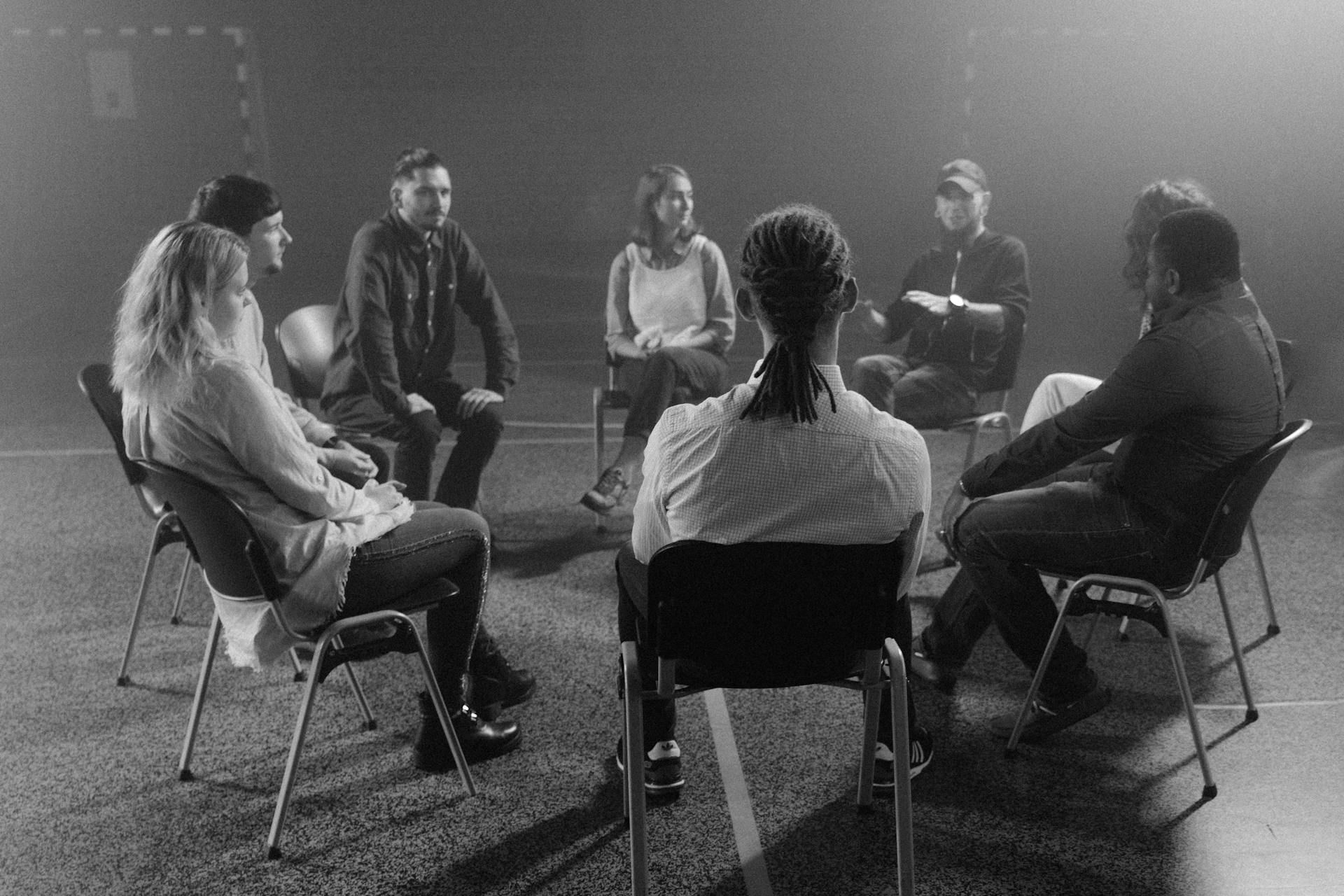Have you ever felt like no one truly understands what you’re going through? Research shows that people recovering from mental health challenges often feel isolated. Peer support connects individuals with similar experiences, helping them feel understood and less alone.
What is Peer Support?
Peer support is a system where people give and receive help based on shared experiences. It complements traditional therapy by offering emotional and practical support from individuals who have been through similar struggles.
This approach creates a sense of community where people feel seen, understood, and hopeful about recovery. Peer support can take many forms such as one-on-one mentorship, group discussions, peer-led workshops, or community outreach programs.
Ultimately, peer support is about human connection. It reminds us that we are not alone in our challenges and that recovery is possible through shared experiences and mutual encouragement.
How Peer Support Works
Peer support helps people heal through connection, empathy, and shared understanding rather than professional expertise.
1. It builds trust
When you talk to someone who has faced a similar situation, you do not need to explain every detail. They already understand, and that shared experience creates instant trust and reduces stigma.

2. It encourages listening without judgement
Peer supporters focus on empathy rather than evaluation. They listen to understand, not to diagnose, which makes it easier for people to open up.
3. It promotes equality
Peer support is based on equality, with no hierarchy or expert–patient relationship. Both individuals learn and grow together resulting in a sense of partnership.
4. Peer support inspires hope
Seeing someone who is doing well in their recovery journey inspires hope. It shows that healing is possible and provides motivation to keep going.
5. It offers practical support
Peer supporters not only listen but also help with daily challenges. They may accompany someone to an appointment, check in after a hard day, or share useful resources.
6. It creates a sense of belonging
Peer support helps people feel that they belong to a community. It reminds them that their struggles do not define them and that they are part of a larger circle of growth and healing.
Challenges in Peer Support
Peer support does a lot of good, but it’s not without its challenges. One of the most common struggles is emotional fatigue. Listening to others’ stories, especially when they mirror your own, can take a toll over time. This is why self-care and having personal support systems are just as important for peer supporters as they are for those they help.
Another challenge is maintaining clear boundaries. When two people connect deeply, it’s easy for personal emotions to spill into the process. Clear communication and honesty about what each person can and cannot offer help maintain mutual respect.
Mismatched expectations can also appear when one person expects more than the other can realistically provide. The essence of peer support is walking alongside someone, not fixing their problems. When that understanding is established early, it prevents disappointment and keeps the relationship healthy.
Lastly, peer support can become less effective when it lacks proper structure or training. Learning how to listen carefully, respect privacy, and handle emotions helps both people in peer support. Training also empowers peer supporters to recognize when a situation requires professional help.
Peer support should be handled with care and awareness to ensure a balanced and sustainable form of healing for everyone involved.
How to Find or Offer Peer Support
Peer support can happen anywhere, whether online, in your local community, or during a casual conversation.
- Join a Peer Support Group
Look for local or online groups focused on your needs. Many NGOs, hospitals, and community centers host these groups. In Nigeria, for example, the Asido Campus Network (ACN) under the Asido Foundation and the Mentally Aware Nigeria Initiative (MANI) offer great peer support opportunities.
- Connect Online
If physical meetings are not possible, join moderated online communities or apps that promote safe mental health discussions. Ensure you choose credible platforms that protect your privacy.
- Become a Peer Supporter
If you are on your recovery journey and feel ready, consider volunteering or mentoring others. Sharing your story can encourage someone else and strengthen your own growth.
Peer support is helpful, but it should not replace professional therapy. You can benefit from both when you combine peer connection for shared understanding with therapy for structured guidance.
Conclusion
Mental health recovery is not a straight path. There will be highs and lows, but having someone to walk beside you makes the journey easier. Whether you are giving or receiving support, peer support reminds us that healing is possible when we do it together.
And remember, peer support works best alongside professional help. Licensed therapists, counselors, and psychologists are available to provide personalized care while you continue to grow through connection and community.
